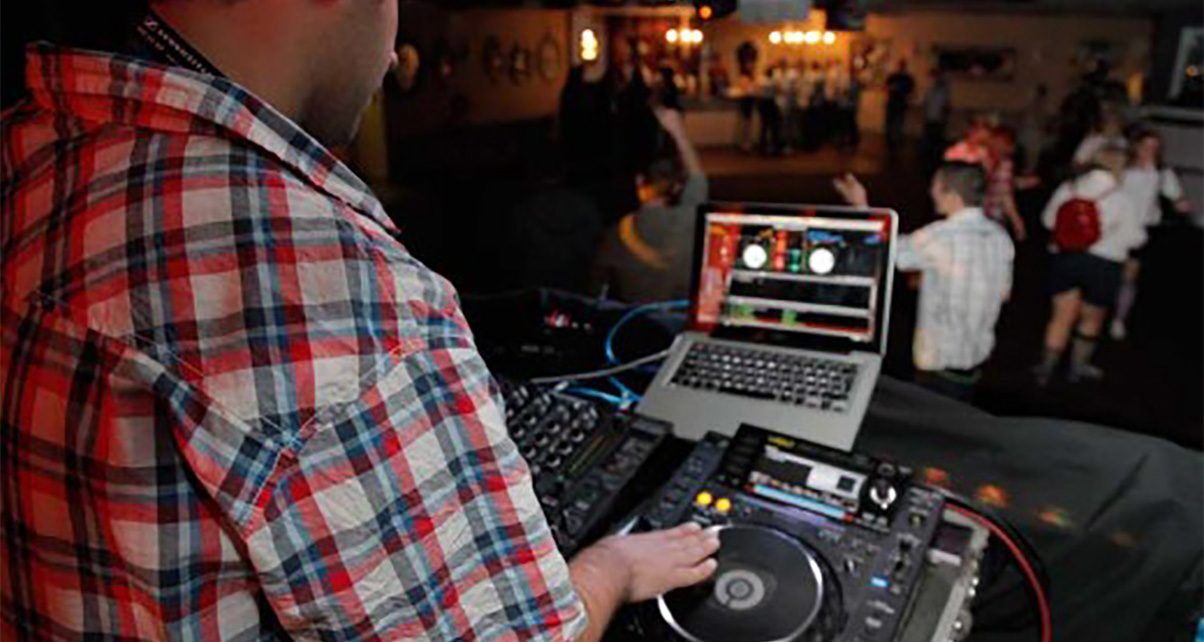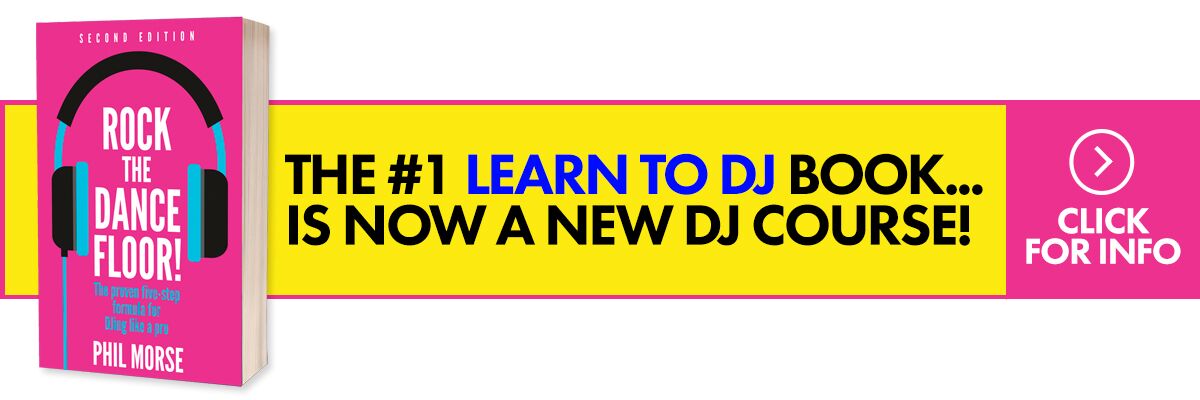Your first DJ gigs “out and about” are unlikely to be peak-time slots. They’re far more likely to be early-doors, when the club is cold and empty and the bar staff and doormen are your only audience – at least while the first few clubbers start to drift in. So how do you do it? I was interviewing veteran DJ and producer Dan Bewick today (who also scores Hollywood films and computer games, but that’s another story…) for my new DJ training course, and it turns out that – just like me – a big passion of his over a 20-year DJ career has been warm ups. Here are five “essential tips” that came out of our chat:
Five tips for playing a great warm-up
- Play familiar music, but not peak-time tracks – A warm-up shouldn’t pack the floor (it’s not possible anyway), but equally shouldn’t scare people off! Sticking to lower-energy, lower-tempo tracks that have a familiar feel (think tunes from the past as well as maybe undiscovered more modern tunes) will give you a nice mix of unthreatening music that gets people in the mood without demanding they “dance or die”…
- Make friends with the staff – A club with no customers still has a whole load of people in it – the staff. You should be positive, polite and friendly from the minute you arrive, and to everyone you meet – and indeed make it your job to introduce yourself to everyone in the venue before it opens and you start playing. Your “good vibes” will immediately set the tone for the evening. If everyone’s in a good mood, that will show to all the customers as they arrive, and so you should do everything in your power to make sure that’s the case
- Have an idea of what you want to play, but be prepared to deviate from it – You simply cannot “plan” a warm-up. Even more so than peak-time sets, you have to “go with the flow”. It’s fine to have “mini-sets” that you stick to within an overall DJ set, but that overall DJ set music be flexible so you can alter it to suit the speed the night is filling up at, and who’s coming in. Those early people are the ones you need to watch, as they’re the ones whose enthusiasm is going to spread to the whole club as it gets busy
- Keep your head up – So moving on from the last point, you simply have to watch who’s in the club, and watch them carefully. Just because they’re not dancing, doesn’t mean you can’t observe how they’re enjoying the tunes. Look for bobbing heads, feet tapping, little dance moves at the edge of the floor or at the bar, smiles, talking about the music when you mix something new in. And focus on those who’ve really come to party (there’s nearly always one group like this) – get a group of those people on the floor and the job’s half done
- Always remember you’re part of a bigger plan – You are not the whole night. If you build up your set so your last few tunes are the loudest, biggest club bangers in your box, how is the next DJ going to follow on from you? If you have a guest DJ/producer playing later on but you play his or her big hits yourself, what are they meant to play? Always think of the night as a whole – or in other words, see past your hour or two and think of the DJs who are coming on after you. They’ll thank you for it, and you’ll be more likely to be invited to play a peak-time set if you do
Finally…
It’s easy to “bottle it” and start throwing club bangers on to fill the floor when you’re warming up – it’s a classic rookie error. Smart DJs know the truth: people rarely arrive at a club and want to dance immediately. Above everything else, the job is to set the vibe and make everyone feel welcome.
And while it may not be the easiest thing in the world for a DJ to appear to be happy, energetic and “into it” – especially when the venue is slow to fill up for whatever reason – that enthusiasm for the music and the night simply has to start from you. It’s a crucial lesson for DJs to learn, and it’s one of the big reasons why if you can play a good warm-up, you can play any time of the night.
• These points came out of an extended video interview on programming warm-ups between Dan Bewick and me, which will be available as part of our forthcoming How To Digital DJ Masterclass video course.
Do you regularly pay warm-ups? Do you have any successes or horror stories you’d like to tell us, or any tips you’d like to share? Please feel free to do so in the comments.


